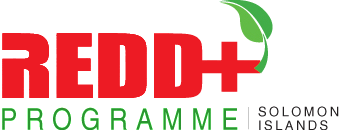Legal Framework for REDD+ in the Solomon Islands
-
Constitutional Framework
Solomon Islands gained independence from British rule in 1978. The country has a parliamentary democracy with a constitutional monarchy, governed by a Prime Minister and National Parliament. There are nine provinces – Central, Choiseul, Guadalcanal, Isabel, Makira-Ulawa, Malaita, Rennell-Bellona, Temotu and Western – all with provincial assemblies, each led by a premier.
… Read More -
Land & Forest Resource Law & Tenure
Land tenure
The majority of land in Solomon Islands (86%) is held under customary tenure, whilst the remaining 14% is alienated land (Corrin, 2012). Most forest area is found on customary land.
Alienated land
There is no freehold title in Solomon Islands. Land can only be held as perpetual estate
… Read More -
Carbon Rights & Benefit-Sharing
Carbon rights
Solomon Islands does not have a statutory framework for forest carbon rights or any reference to carbon ‘ownership’ in legislation. In the absence of legislation however, it is relatively clear that as the indigenous people of Solomon Islands own the land and forests under customary law, by implication
… Read More -
Benefit-Sharing
Solomon Islands does not have legislation which specifically addresses benefit-sharing and distribution systems for REDD+ activities.
At the national level, the Solomon Islands Government has recently passed the Public Financial Management Act 2013 (in force 10 October 2013) which seeks to create a framework to promote sound public financial management
… Read More -
Other Relevant Laws & Processes
5(a). Land use planning
Solomon Islands lacks a national legislative framework for land use planning. The Town and Country Planning Act [Cap. 154] , introduced in 1980, regulates and controls development in town areas (known as local planning areas) (s. 3) but does not apply to customary land, which is where
… Read More -
Protected Areas Act 2010
The Protected Areas Act 2 010 came into force on 10 February 2012. It addresses the lack of a national legal mechanism capable of protecting land areas from incompatible uses. Under the Act, the Minister can declare an area to be a protected area if, among other things, it “possesses
… Read More -
Procedures, Guidelines or Safeguards
Dispute resolution framework
Most disputes are dealt with informally at the village level, either by local chiefs or leaders, or in some cases, the church.
Under the formal legal framework, disputes over customary land in Solomon Islands must first be referred to the local chiefs, who will determine the dispute
… Read More -
Free, Prior and Informed Consent
Given that 90% of land in Solomon Islands is held as customary land and the majority of REDD+ activities will be undertaken on these lands, the free, prior and informed consent (FPIC) of customary landowners will be required for almost all REDD+ activities. With assistance from the UN-REDD Programme, the
… Read More -
Gender Equity & Equality
Promoting and enhancing gender equality, gender equity and women’s empowerment is an important safeguard for REDD+.
In Solomon Islands, women have restricted roles in leadership and decision-making processes at the family, tribal and community levels. Although there are some matrilineal societies where women inherit customary land, this does not necessarily
… Read More -
Social and Environmental Impact Assessment
Solomon Islands has a comprehensive legislative framework for environmental impact assessment in the form of the Environment Act 1998 (and Environment Regulations 2008 ), which could form the basis for an effective social and environmental safeguard – but only if it is made clear that the Act applies to REDD+ activities. This
… Read More -
Anti-Corruption Framework
Since the 1980’s, the forest sector in Solomon Islands has been characterised by collusion between foreign logging companies and local politicians, systemic corruption and poor monitoring and enforcement (Allen 2011). Numerous efforts to reform the flawed processes for allocating timber rights under the Forest Resources and Timber Utilisation Act in
… Read More
- 1

